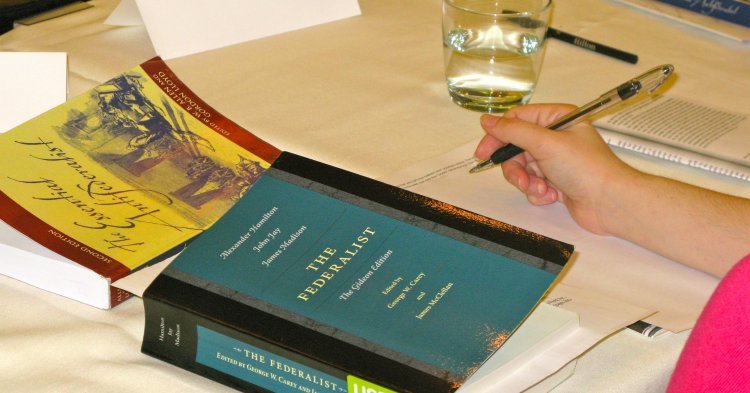While my fellow students got away to rather more exotic anthropological fields, such as Mexican eco-villages or remote Alaskan communes, I found myself eager to meet these Young European Federalists and to find out what they believe in. Before I continue, I have to express my gratitude to the members of the JEF Secretariat, who proved extremely welcoming from the moment I stepped through the door.
In the beginning, all I had was my own, rather naïve, pro-Europeanism, alongside a vague idea about federalism and youth politics. As an anthropologist, I wanted to study and analyse motivations, hopes and beliefs among these so-called JEFers – both from a generational and from a social perspective. However, after only a few weeks of exploring these matters and finding out what federalism means for young Europeans, something quite startling struck me: federalism is not just federalism.
’Turning points’ are not uncommon when carrying out anthropological research. Mine related to the ‘national baggage’ young Europeans, even self-defined federalists, carry. Within JEF, there is no such thing as a common conception of federalism (the so-called f-word). Instead – and this was the first substantive finding I made – there are various different understandings and perceptions thereof. This also entails different beliefs as to what being a federalist means means and different levels of emotional attachment to the concept. This diversity is not only national: it can be found within all JEF sections and at all levels. Indeed, I would say it is highly personal. What makes this organization particularly beautiful is precisely that it manages to bring those feelings together: the JEF spirit still dominates and “homogenizes” JEFers from all across Europe. As corny as it may sound, it provides true Unity in Diversity.
This lack of mutual understanding of federalism may, of course, be obvious to many readers. To those readers, I would pose the following questions. What do you know about other perceptions than your own? Would you be able to summarize five different conceptions of the federalist idea within JEF? As a maybe rather biased example, would it be possible for you to explain why Scandinavian JEFers have a tendency to not call themselves federalists? For over three months, I have bothered members from all over Europe with questions such as the above. This has made me aware of a common trend: this diversity is often unspoken of, unknown to some and a highly awkward topic for others.
In just the same way anthropologists are used to ‘turning points’ throughout their research, they are also used to changing the scope of their research questions. In my case, this has translated into two particular interests: in the lack of knowledge about different perceptions of federalism, and in why this is unspoken of.
These unexpected findings are the reason I love anthropological thinking. I do not only try to research how young federalists act and organize themselves, but also how they think, and how an organization such as JEF manages to embrace and embody different approaches and beliefs while maintaining its internal cohesion. My research and my unpredictable findings about the complexity of federalism, have not led me to find a growing anti-federalism in JEF. Nor has it led me to think the concept is increasingly diluted. Quite the contrary: the majority of JEFers I have met would, without hesitation, describe themselves as federalists.
Yet this word carries different meanings and different degrees. It is both a philosophy and a political theory. It is both a utopia worth dreaming of, and a political system which can easily happen in 10 years. This is JEF: a catalogue of hundreds of different understandings, perceptions, emotions and dreams about the future of Europe.
As an anthropologist, it is not my job to criticize or advise those I study. However, I hope my own interest in learning about what federalism means can serve to inspire JEFers. I hope it can inspire you to think, talk, debate about the beloved f-word, and to find inspiration in each other. The way we humans think is deeply influenced by cultural differences. The fact that we can actually think, dream and hope are capabilities we take for granted. An organization such as JEF would not exist if we were not able to dream about concepts such as federalism.
I would end this article by asking you the question I have spent three months asking and which I always get different answers to. What does federalism mean to you?


Follow the comments: |
|
